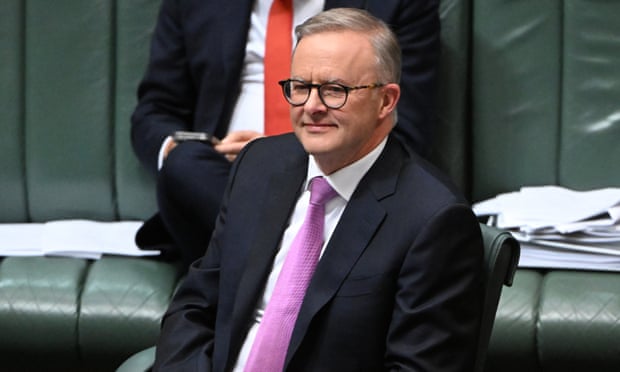Extract from The Guardian

That infamous vote in 2009 sinking Kevin Rudd’s carbon pollution reduction scheme. Years of apocalyptic screeching about nonexistent carbon taxes. The repeal of the clean energy scheme. That day when Scott Morrison brandished a lump of coal supplied by the Minerals Council of Australia and told MPs across the chamber not to be scared.
Too many bad days. A dark period where the Liberal and National parties abrogated a core responsibility of being a governing party – the responsibility to face the future. The responsibility to keep citizens safe. The responsibility for finding opportunity in change.
A lot of voters have wondered over the last ten years whether or not their representative democracy was more than a little cooked because of the parade of deeply unserious plonkers and oxygen thieves intent on lying and posturing at their expense.
It’s been hard to bear witness. Hard to be hopeful. Hard to persist in the face of cacophonous, institutionalised untruth. Hard to explain this profound failure to people who deserved better. Hard to believe in progress. But Wednesday was a good day because enough democratic representatives resolved that moving forward is always better than standing still.
The Albanese government has been flat out for weeks pretending this first climate bill – the legislation enshrining emissions reduction targets for 2030 and 2050 – didn’t actually matter, because the new government would get about making the transition anyway.
This latter point might be technically true. Labor has continued to show up for climate action, even when these folks have lost elections as a consequence of this persistence, so it’s reasonable to assume Anthony Albanese and Chris Bowen would have kept plugging away.
Greens will vote in favour of Labor’s climate bill, Adam Bandt says – video
Global capital has also finally deemed the transition inexorable, so perhaps an updated nationally determined contribution lodged with the United Nations could have substituted for clear legislation enshrining targets passed in the Australian parliament. But I doubt it, frankly.
“We have a great responsibility to this beautiful island continent that we live in, to make sure that we act on climate change,” the prime minister said. “This government will. We can tell our children that we stepped up, we took responsibility and we met the moment”.
Meeting the moment is terrific, but it does require unvarnished truth.
Climate science tells us Labor’s 43% cut in emissions by 2030 isn’t ambitious enough. It is also an incontrovertible fact that Australia is continuing to contribute to global heating by exporting polluting fossil fuels.
But we can acknowledge these facts and still be entirely clear that passing this legislation matters.
It matters because the last decade tells us any concrete action to address the climate crisis is not only very hard to achieve in Australia, but also extremely difficult, if not impossible, to future proof.
Given that history, a history that can’t be wished away, Adam Bandt as Greens leader was intelligent enough to grab the opportunity of forward motion. Bandt accepted that responsibility. He’s also a skilled enough politician to bring his own people with him.
So taking this first step matters, because it tethers Australia to significant facts, like there’s a climate crisis, and responsible, thoughtful, moral people have to do what we can to try to avert it.
It’s really not complicated. Facing up to the reality of the climate crisis means doing something, which is always better than doing nothing.
In practical terms, Labor’s first run of legislation is nothing like a complete climate policy. But it sets the rules of the road, and establishing rules and norms is the only path to ending the unconscionable decade of lies, inertia, regression and confusion.
The legislation matters because it accelerates the trajectory of domestic emissions reduction, and it creates an accountability framework attempting to safeguard an existential objective. These are foundational steps. This isn’t symbolism.
Wednesday also matters because of what this step forward represents as a moment in time. It demonstrates that Australian politics isn’t broken. It demonstrates that progress and pragmatism can coexist.
So this matters, but it is the start of something, not the end of something.
Once the targets legislation passes, the Albanese government will be on to overhauling the safeguards mechanism, which will be the primary means of reducing industrial pollution. Retooling the safeguards mechanism is the live action test of whether the climate wars in Australia are actually over.
Australia also needs a strategy to reduce transport emissions. Cutting the price of electric vehicles isn’t a strategy, it’s an overture to a strategy.
The Greens are also correct to pursue a strengthening of environmental regulations to ensure that climate risks are assessed before new developments are given regulatory approval.
It’s extraordinary that this doesn’t happen now, and Labor made no promises pre-election that constrain some level of progress on this critical point during this parliamentary term.

No comments:
Post a Comment